26 Jul 7 Simple Ways to Reduce Plastic as a Busy Parent
Did you know that less than 10% of everyday plastic actually gets recycled in the UK?[1] What a devastating statistic! And yet the environment is so important. It’s our home, our kids’ home, and it will be the home of our grandchildren, their children, and so on. We need to work together to protect our planet, and a big part of that is reducing plastic. Yes, we’re stating the obvious here. You know this already – but it’s never that simple, is it?
Because as a parent, you have one million and one things to do. You’re always on the go. From the early morning school run chaos to the evening rush of dinner, bath and bedtime, it’s relentless. And reducing plastic feels like another obligation on your to-do list.
However, this Plastic Free July, we want to inspire you with plastic-reducing ways that slot into your everyday parenting life (yes, that means no extra complications, because we know you don’t have time for that!).
Continue reading to find out easy ways to reduce plastic in your family.
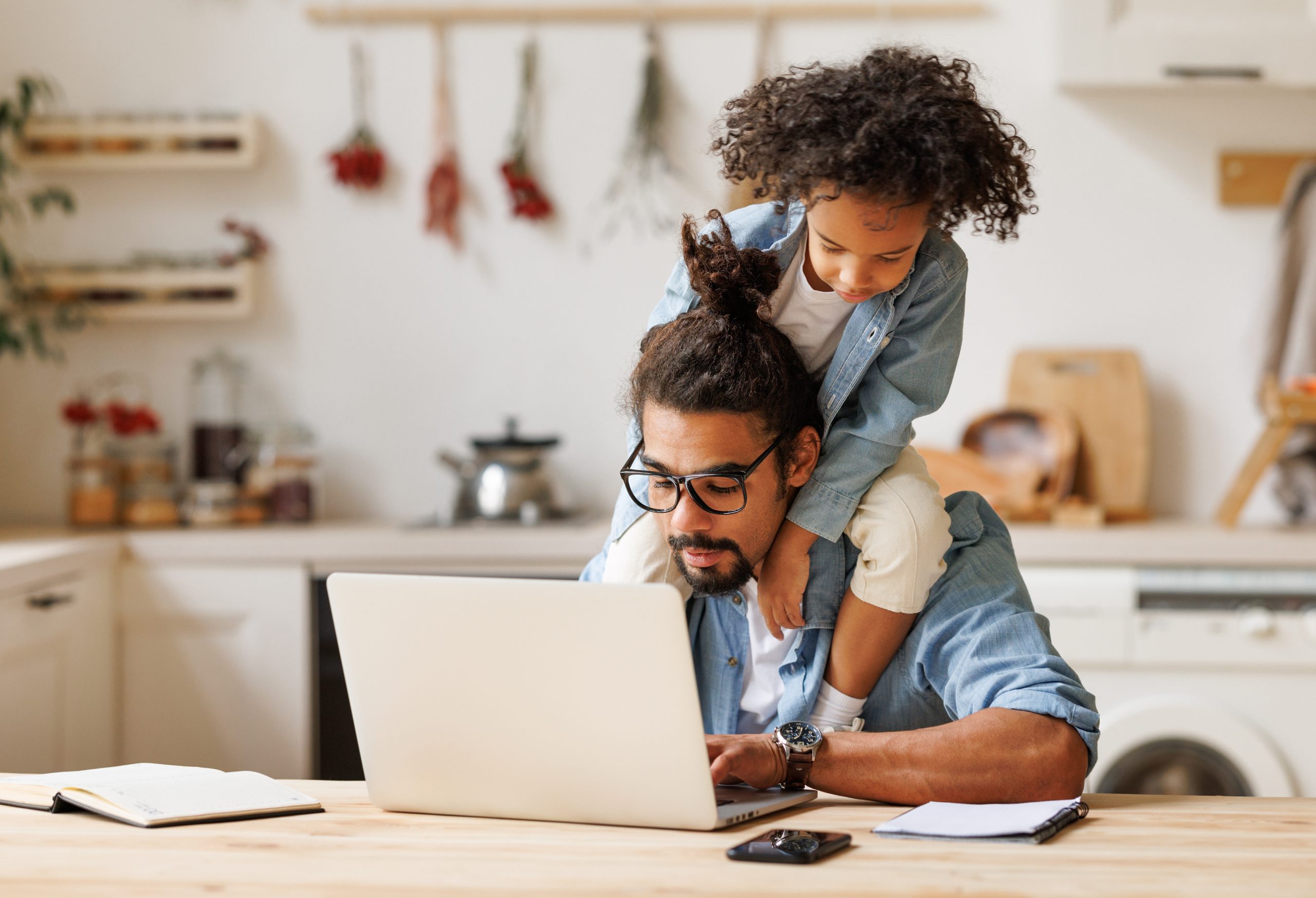
We’re a family too – so we know what it’s like in a busy household. ‘Bigger’ things like plastic swaps seem unthinkable some days. That’s why, in part, we’ve invested in reducing the plastic in our new AproDerm® bottles by 25% while still keeping them recyclable – without any compromise on the size or the product inside (yes, it’s still the same product – we’ve made no changes to this). Find out more here.
1. Swap something single-use
We know in an ideal world, we’d all be investing in reusable and sustainable nappies, wipes, breast pads, food pouches and so on – and saying a big no to single-use plastics. Right? Well, that’s not always practical. So, why not commit to swapping just one thing that, as a bonus, makes your life easier?
Great examples could be washable wipes and breast pads. You’re likely putting a wash on frequently anyway, so this makes perfect sense.
Remember, you don’t need an ‘all or nothing’ approach. For instance, NCT suggests that parents flex between reusable nappies for everyday home life and disposable nappies while on holiday.[2]
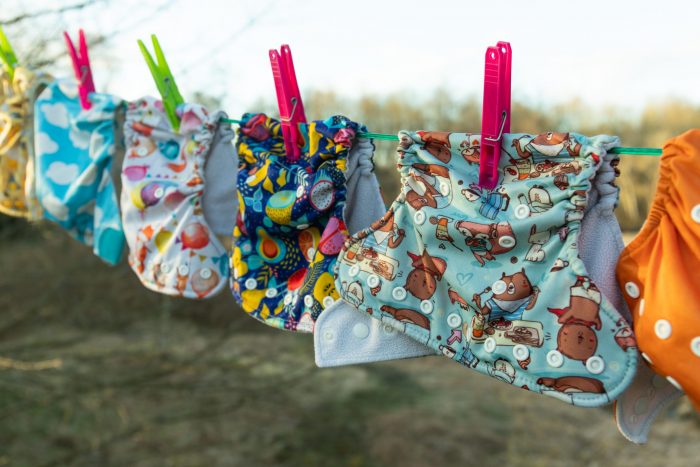
2. Shop second-hand for baby tech and toys
Plastic is durable and lasts a very long time – making it ideal for products involving kids (all that wear and tear!). So, why do we often feel the need to buy brand new?
Buying second-hand from Facebook marketplace, eBay, or your local charity shop can be a fantastic way to grab a bargain, save pennies and do your bit to reduce plastic use.
Things you can buy second-hand
- baby monitors
- baby bouncers
- baby strollers
- prams
- highchairs
- toddler toys
- clothes
- and loads more
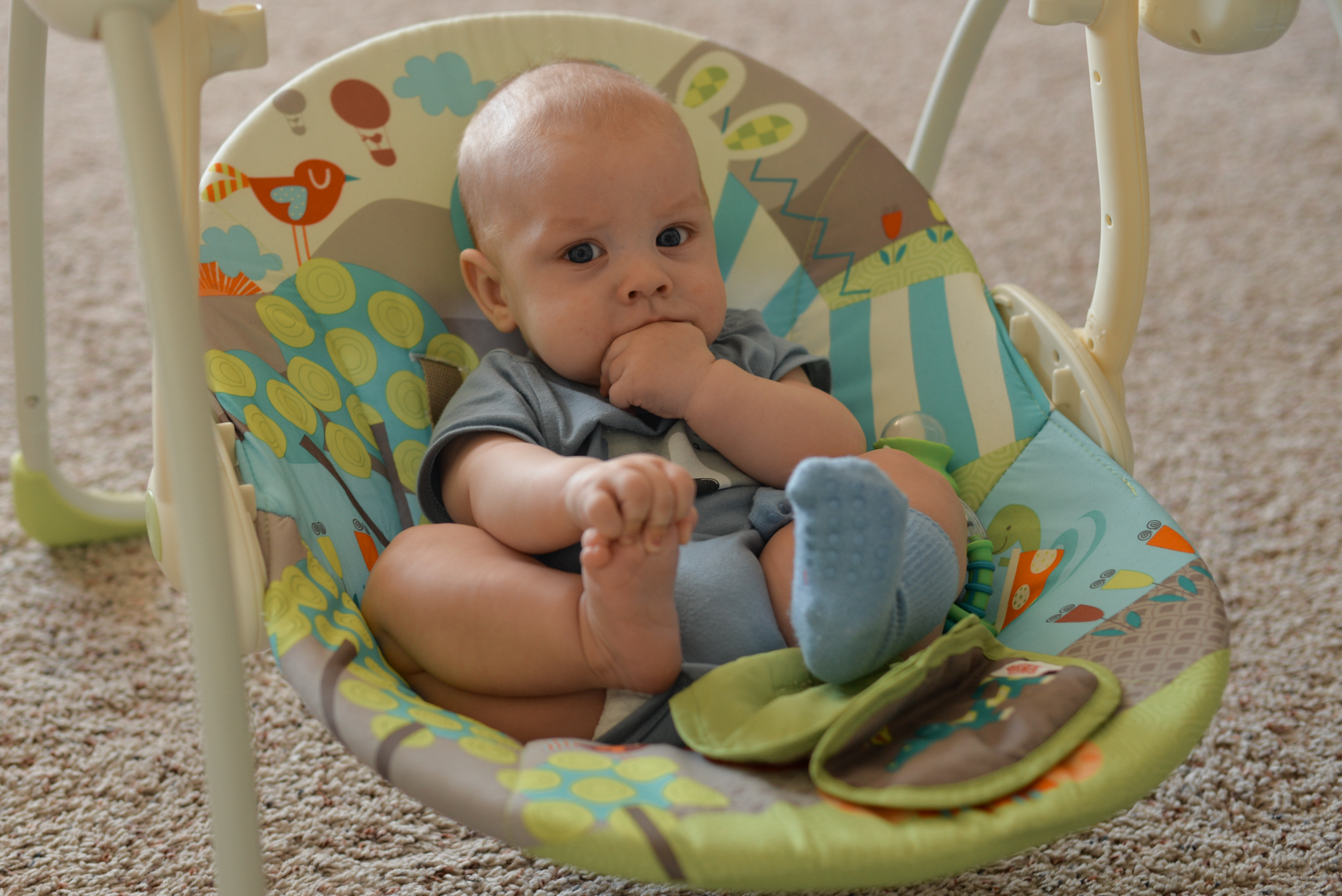
What’s more, it’s often so easy! Many people offer convenient delivery, or you can collect locally (on the way from the school run, for instance).
3. Hire baby equipment
Did you know you can also hire prams, buggies and other baby equipment?[3] A great option for when you’re unlikely to use something for a long time, like a special buggy for a holiday, for instance – and this way, you’re helping the planet too.
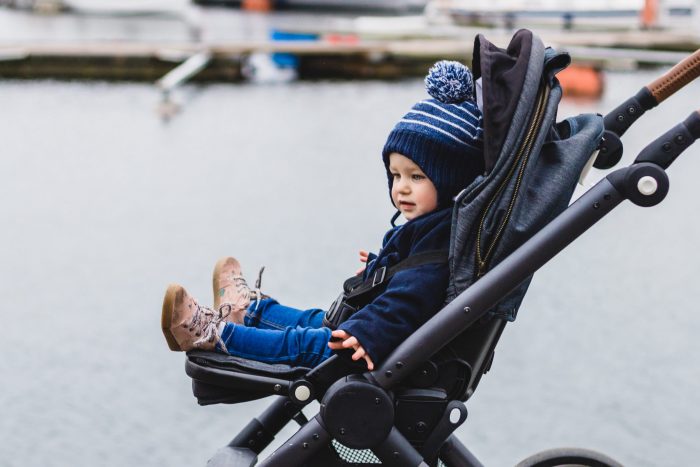
4. Buy in bulk when you can
If your budget allows, buying food, loo roll and other household items in bulk can be a great way to plan your month and save on plastic packaging. Of course, this isn’t possible all the time – for budget and space reasons – so even just one thing (like the loo roll!) can make a difference. Everything adds up.
5. Ask your GP for plastic-free or recyclable plastic alternatives
Did you know there is an agenda to deliver a net zero NHS?[4] Although work for the ‘Greener NHS’ is technically behind the scenes, you – as a patient (a service user) – can drive change by requesting more environmentally-friendly options.
Next time your GP (or other Healthcare Professional) prescribes something, ask about the product’s recyclable plastic packaging – whether that be antibiotics in blisters or emollient packaging. If you don’t ask, you’ll never know!
6. Discover recyclable plastic skincare products
1.3 million people in the UK suffer from eczema[5]. And it is estimated that psoriasis affects 2 in 100 people[6]. We call them ‘common’ skin conditions, yet they all require regular and consistent treatment – and just because they are common doesn’t make them easy to deal with.
The mental load this has on parents treating children with eczema[7], psoriasis or other conditions such as ichthyosis is huge. Not to mention, what if you as a parent are a sufferer too? Do you have time to worry about the amount of plastic in emollient containers? Probably not. But do you care? Of course, you do – that’s not the question.
Reduced plastic AproDerm® bottles and fully recyclable pumps
It’s our responsibility, as a company, to supply you with reduced-plastic containers for our skincare emollients and moisturisers. We need to make it easy for you – so searching for recyclable plastic isn’t another errand for you to run.
Same size bottles, same great formulations
That’s why we’ve worked hard to reduce the plastic content of our AproDerm® bottles by 25% – and the new pumps are fully recyclable. But nothing else has changed. AproDerm® is working fantastically for our customers – so the actual emollient formulations are still exactly the same, as are the bottle sizes (don’t worry, you don’t get any less with the new reduced-plastic bottles).
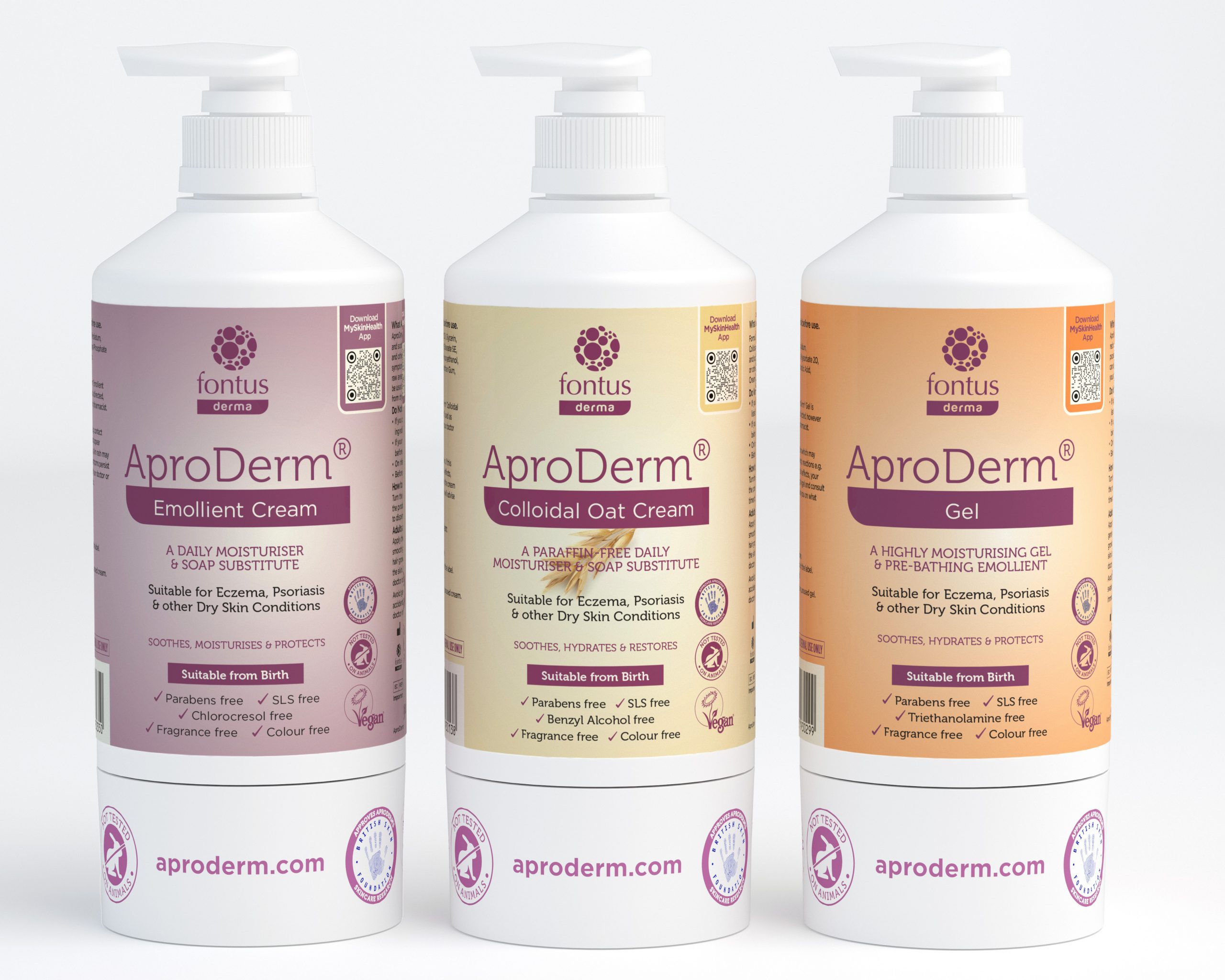
7. Share parent-friendly plastic-reducing tips
Positive change can start in the community – so spread the word at mum and baby groups, playgroups, the school gates, and any places where you meet with other hectic parents who want to reduce their plastic use.
We hope you enjoyed this blog post – and feel inspired to make some easy changes that slot into your hectic family life. You’re doing a wonderful thing for our future generations – keep going!
We would love to hear from you.
References
1 Greenpeace (2021) ‘What really happens to your plastic recycling?’ Greenpeace, viewed 20 July 2022 <https://www.greenpeace.org.uk/news/plastic-recycling-export-incineration/>
2 NCT (2018) ‘Reusable nappies or disposable nappies?’ NCT, viewed 20 July 2022 <https://www.nct.org.uk/baby-toddler/nappies-and-poo/reusable-nappies-or-disposable-nappies/>
3 The Baby Loft (2019) ‘The Baby Loft’ The Baby Loft, viewed 26 July 2022 <https://www.thebabyloft.co.uk/>
4 NHS England (2022) ‘Delivering a ‘Net Zero National Health Service’ NHS England, [PDF version of document downloaded 26 July 2022]
5 NHS Oxleas (2021) ‘Eczema’ NHS Oxleas, viewed 20 July 2022 <http://oxleas.nhs.uk/advice-and-guidance/adult-community-services/physical-health-conditions/eczema/>
6 NHS (2022) ‘Psoriasis’ NHS, viewed 20 July 2022 <https://www.nhs.uk/conditions/psoriasis/>
7 Faught J, Bierl C, Barton B, Kemp A (2007) ‘Stress in mothers of young children with eczema’ Archives of Disease in Childhood, 92 (8): 683-686



Sorry, the comment form is closed at this time.